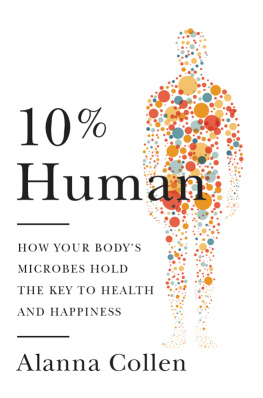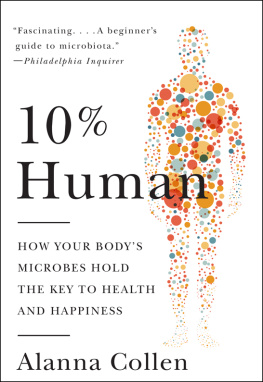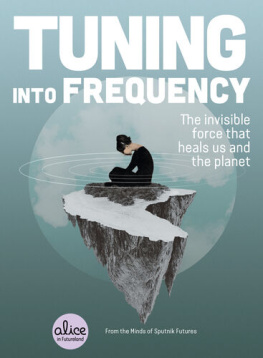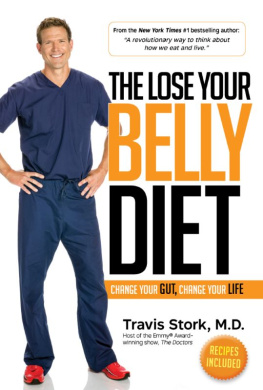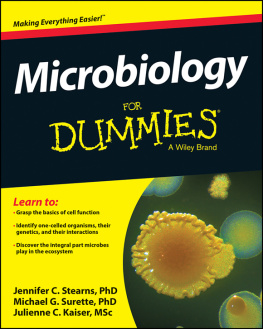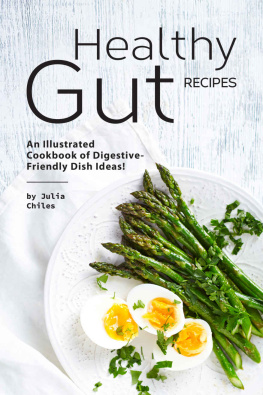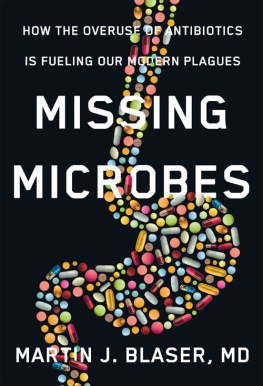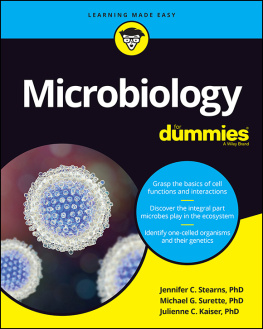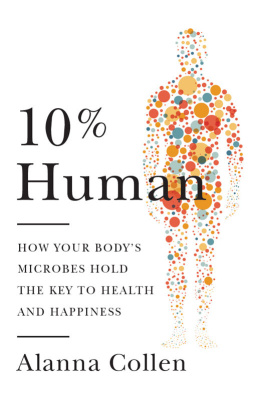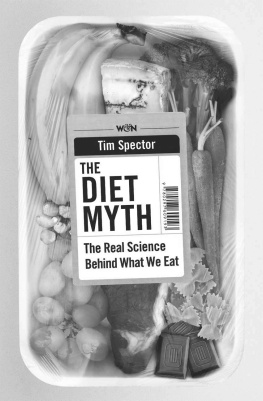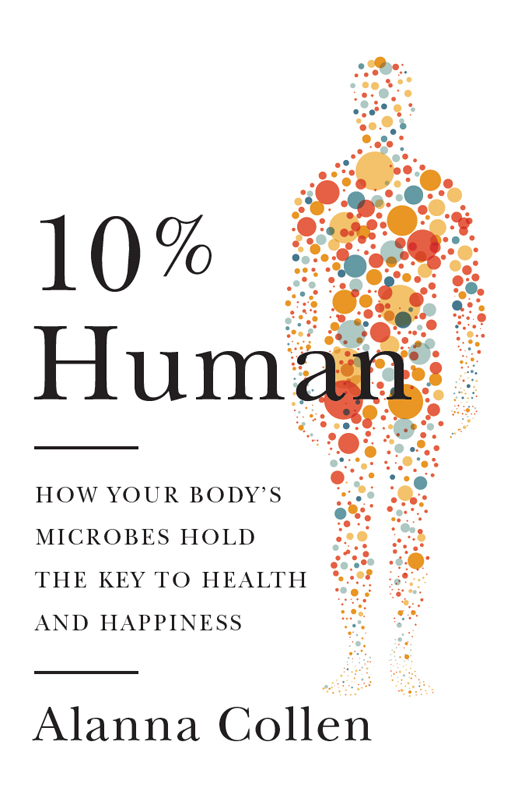For Ben and his microbes.
My favourite superorganism.
At the heart of science is an essential balance between two seemingly contradictory attitudes an openness to new ideas, no matter how bizarre or counterintuitive they may be, and the most ruthless sceptical scrutiny of all ideas, old and new. This is how deep truths are winnowed from deep nonsense.
CARL SAGAN
CONTENTS
Guide
As I walked back through the forest that night in the summer of 2005, with twenty bats in cotton bags hanging around my neck and all manner of insect life dashing for the light of my head torch, I realised my ankles were itching. I had my repellent-soaked trousers tucked into my leech socks, with another pair underneath for good measure. The humidity and drenching sweat, the muddy trails, my fear of tigers, and the mosquitoes were enough to contend with as I made my rounds, collecting bats out of traps in the darkness of the rainforest. But something had got through the barrier of fabric and chemicals protecting my skin. Something itchy.
At twenty-two, I spent what turned out to be a life-changing three months living in the heart of Krau Wildlife Reserve in peninsular Malaysia. During my biology degree, I had become fascinated by bats, and when the opportunity came up to work as a field assistant to a British bat scientist, I signed up immediately. Encounters with leaf monkeys, gibbons and an extraordinary diversity of bats made the challenges of sleeping in a hammock and washing in a river populated by monitor lizards seem worthwhile. But, as I was to discover, the trials of life in a tropical forest can live on far beyond the experience itself.
Back at base camp, in a clearing next to the river, I peeled back the layers to reveal the source of my discomfort: not leeches, but ticks. Perhaps fifty or so, some embedded in my skin, others crawling up my legs. I brushed the loose ones off, and turned back to the bats, measuring and recording scientific data about them as quickly as I could. Later, with the bats released, and the forest pitch-black and buzzing with cicadas, I zipped myself into my cocoon-like hammock, and, with a pair of tweezers, under the light of my head torch, I removed every last tick.
A few months later, at home in London, the tropical infection introduced to me by the ticks took hold. My body seized up and my toe bone swelled. Weird symptoms came and went, as did various blood tests and hospital specialists. My life would be put on hold for weeks or months at a time as bouts of pain, fatigue and confusion gripped me without warning, then released me again as if nothing had happened. By the time I was diagnosed many years later, the infection was entrenched, and I was given a course of antibiotics long and intense enough to cure a herd of cattle. At last, I was going to be myself again.
But, unexpectedly, the story did not end there. I was cured, but not just of the tick-borne infection. Instead, it seemed I had been cured as if I were a piece of meat. The antibiotics had worked their magic, but I began to suffer new symptoms, as varied as before. My skin was raw, my digestive system was choosy, and I was prone to picking up every infection going. I had a suspicion that the antibiotics I had taken had not only eradicated the bacteria that plagued me, but also those that belonged in me. I felt like I had become inhospitable to microbes, and I learnt just how much I needed the 100 trillion friendly little creatures who had, until recently, called my body their home.
You are just 10 per cent human.
For every one of the cells that make up the vessel that you call your body, there are nine impostor cells hitching a ride. You are not just flesh and blood, muscle and bone, brain and skin, but also bacteria and fungi. You are more them than you are you. Your gut alone hosts 100 trillion of them, like a coral reef growing on the rugged seabed that is your intestine. Around 4,000 different species carve out their own little niches, nestled among folds that give your 1.5-metres-long colon the surface area of a double bed. Over your lifetime, you will play host to bugs the equivalent weight of five African elephants. Your skin is crawling with them. There are more on your fingertip than there are people in Britain.
Disgusting, isnt it? We are surely too sophisticated, too hygienic, too evolved to be colonised in this way. Shouldnt we have shunned microbes, like we did fur and tails, when we left the forests? Doesnt modern medicine have the tools to help us evict them so that we can live cleaner, more healthy, independent lives? Since the bodys microbial habitat was first discovered we have tolerated it, as it seemed to do us no harm. But unlike the coral reefs, or the rainforests, we have not thought to protect it, let alone to cherish it.
As an evolutionary biologist, I am trained to look for the advantage, the meaning, in the anatomy and behaviour of an organism. Usually, characteristics and interactions that are truly detrimental are either fought against, or lost in evolutionary time. That set me thinking: our 100 trillion microbes could not call us home if they brought nothing to the party. Our immune systems fight off germs and cure us of infections, so why would they tolerate being invaded in this way? Having subjected my own invaders, both good and bad, to months of chemical warfare, I wanted to know more about the collateral damage I had caused.
As it turned out, I was asking this question at exactly the right time. After decades of slow-paced scientific attempts at learning more about the bodys microbes by culturing them on Petri dishes, technology had finally caught up with our curiosity. Most of the microbes living inside us die when they are exposed to oxygen, because they are adapted to an oxygen-free existence deep in our guts. Growing them outside the body is difficult, and experimenting with them is even harder.
But, in the wake of the seminal Human Genome Project, in which every human gene was decoded, scientists are now capable of sequencing massive quantities of DNA extremely quickly and cheaply. Even our dead microbes, expelled from the body in the stool, could now be identified because their DNA remained intact. We had thought our microbes didnt matter, but science is beginning to reveal a different story. A story in which our lives are intertwined with those of our hitchhikers, where our microbes run our bodies, and becoming a healthy human is impossible without them.
My own health troubles were the tip of the iceberg. I learnt of the emerging scientific evidence that disruptions to the bodys microbes were behind gastrointestinal disorders, allergies, autoimmune diseases, and even obesity. And it wasnt just physical health that could be affected, but mental health as well, from anxiety and depression to obsessivecompulsive disorder (OCD) and autism. Many of the illnesses we accept as part of life were not, it seemed, down to flaws in our genes, or our bodies letting us down, but were instead newly emerging conditions brought on by our failure to cherish the long-held extension to our own human cells: our microbes.
Through my research, I hoped not only to discover what damage the antibiotics I had taken had done to my microbial colony, but how it had made me unwell, and what I could do to restore the balance of microbes I had harboured before the night of the tick bites, eight years earlier. To learn more, I signed up to take the ultimate step in self-discovery: DNA sequencing. But rather than sequence my own genes, I would have the genes of my personal colony of microbes my microbiome sequenced. By knowing which species and strains of bacteria I contained, I would have a starting point for self-improvement. Using the latest understanding of what

